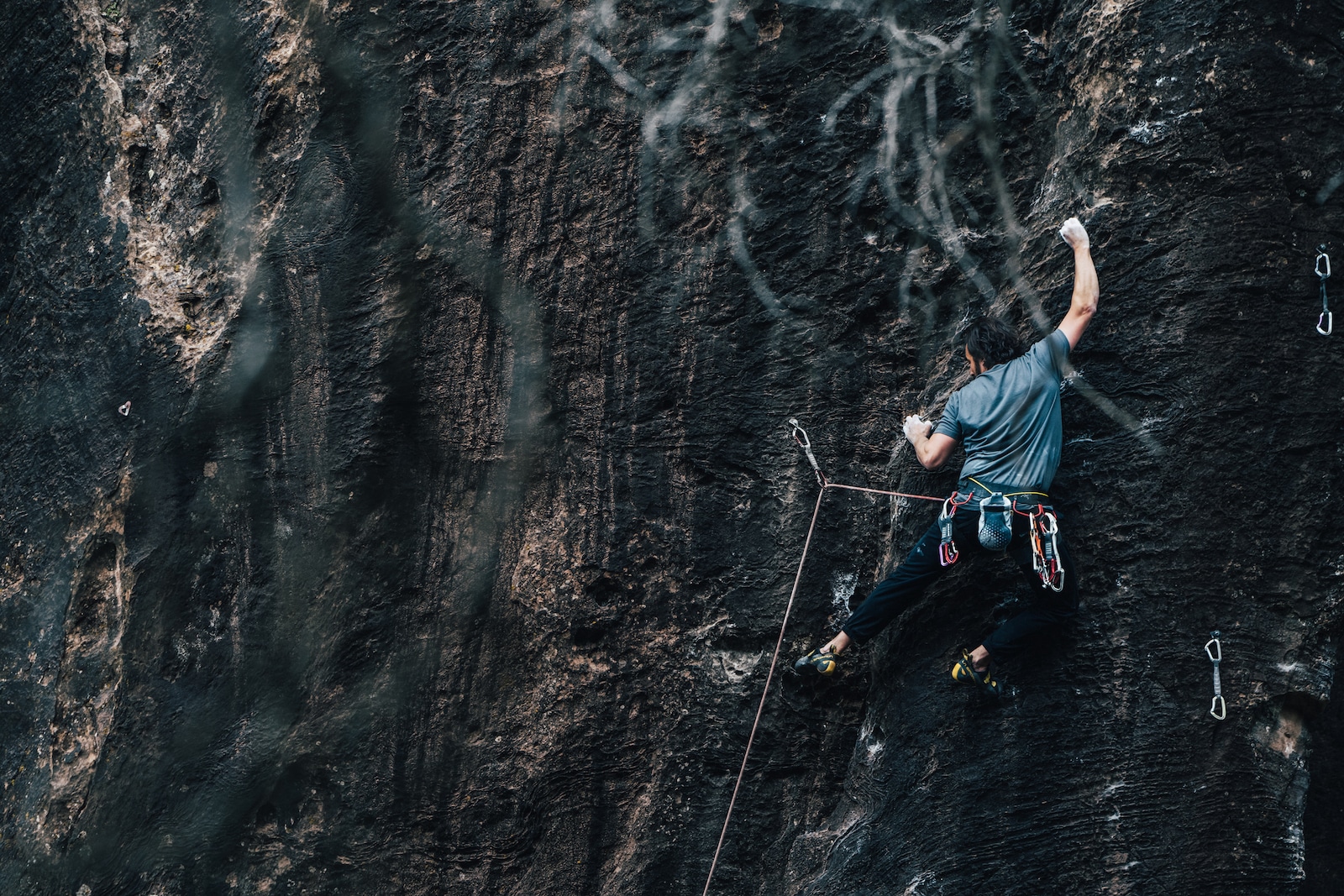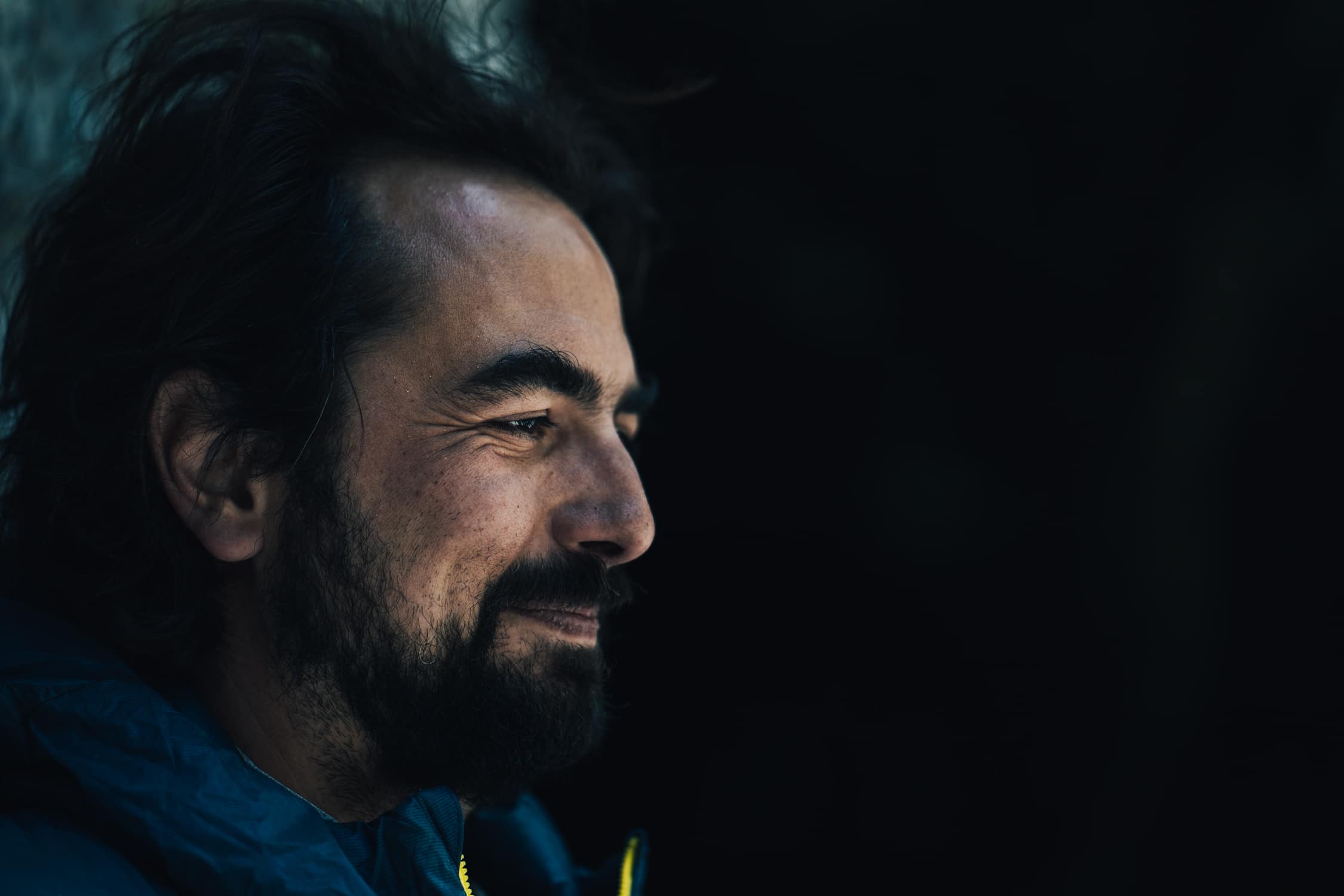Perfectionism is the bane of all creative pursuits, and climbing is no different. In fact, one reason to be hesitant in classifying climbing as a sport is the number of remarkable parallels it holds to such fields as dancing, music, writing, or art. When you’re climbing well, it feels like your body just knows what to do, the way the artist’s hand can draw a face without trying to draw a face or a musician can improvise on the spot.
There is no thinking. It’s just uninhibited, beautiful self-expression.
In sport climbing, one of the most frustrating things you can witness is the climbers who, when trying to redpoint, accidentally mess up their beta … but haven’t fallen yet either. Instead of trying to do one more move, or come up with a new sequence, or do, well, just something, anything! they resign themselves to slumping onto the rope and saying, “Take!”
The moment dies. The experience is over. The magic of all that could be dissipates. All because of a stifling allegiance to perfectionism—or even a lack of creativity.
We’ve all done it and it sucks. This type of self-schlonging should really have a name. Cue the sad tuba music. Wah-wah. I forgot my beta. Let’s call it a “wah-wah.”
Did you send your proj today?
No, I fucked up my beta and did a wah-wah.
(Shakes head.) Sucks shit, buddy. Try harder next time.
There seems to be a higher incidence of wah-wahs at Rifle than elsewhere. Perhaps we can explain this by the necessary beta refinements required to send many Rifle routes—it can get pretty finicky in Canyon Land. Or maybe the climbers here tend to be particularly fastidious dweebs who are naturally drawn to perfectionism. Or maybe most Rifle climbers are just climbing on routes that are way too difficult. Regardless, I’ve noticed that oopsying yourself into a wah-wah can become a pathology afflicting certain sport climbers, more so than others. They often seem to get stuck in a rut in which the only days they think they can send are the days when literally everything is literally perfect.
Perfection doesn’t come around all that often, unfortunately.
The approach that many sport climbers bring is the mindset of an ambitious and driven child in piano lessons. They are the kids who are talented but also fearful of making a mistake. They practice and practice never to miss a note at the recital. Though this approach is necessary to mastering fundamentals, at some point it can to lead to expressions that feel just … flat. Of course, I’m just as susceptible to this as anyone and probably worse than most.
Nothing is worse than the fear of failure.
On an episode of The RunOut podcast earlier this year, I referenced my feelings of ennui toward the new generation of rap music, and spoke of a rekindled affection for listening to Phish. I felt embarrassed to admit this for some reason, probably because hippies are so empirically and universally annoying.
But as I said on the pod, the reason I’ve been enjoying Phish lately is the improvisational qualities of their live performances. More and more I find myself attracted to exhibitions of raw, improvised creative expression—whether that’s music or art or writing or podcasting or even climbing. I’m also always pursuing it in my own creative work.
For example, I am increasingly finding it utterly tedious to listen to This American Life or Radiolab. They’re awesome shows about interesting things. The production is world class. But they’re also … boring. And by boring I mean predictable. I’d much rather listen to a lower production value conversation in which you don’t know what the speakers will say next, in which they find themselves figuring out their opinions on the spot and end up either arguing themselves into corners or, better still, arriving at a surprising conclusive truth. That process is so much more interesting to me.
The act of creating something novel and interesting out of nothing is remarkable. Musician and researcher Dr. Charles Limb looked at the brains of jazz musicians and rappers during improvisational sessions and discovered that the self-conscious, self-monitoring parts of your brain turned off and your inhibitions dropped. This seems obvious, but it’s interesting nonetheless.
In Tina Fey’s “Bossypants,” she outlines her four rules for improvisation, which are 1) Always Say Yes. 2) Say “Yes, And” 3) Make Mistakes 4) There are No Mistakes, Only Opportunities. In describing the fourth rule, Fey writes:
If I start a scene as what I think is very clearly a cop riding a bicycle, but you think I am a hamster in a hamster wheel, guess what? Now I’m a hamster in a hamster wheel. I’m not going to stop everything to explain that it was really supposed to be a bike.
Sometimes we start our redpoint burn thinking that we’re riding a bike, but we fuck up our beta and it turns out that we’re suddenly hamsters in wheels. That’s fine. But you can’t stop running just because you’re now a rodent.
So next time you fuck up your beta, instead of saying wah-wah, just tell yourself that you’re a hamster.
Here are a few videos for some more improvisational perfectionism
Marc Rebillet: This YouTube phenom creates live loops and music on the spot, and does 2-hour live improv sessions every week.
Harry Mack: I discovered him because he recently appeared with Marc Rebillet, and since then I’ve been blown away by his YouTube feed. He is hands down the best freestyle rapper I’ve ever heard, and definitely an antidote to the ennui I reference above.
“Anatomy of a Jam”: this is a video that I would only recommend to the most committed Phish fans, but it does an interesting dissection of one of Phish’s jams, and even evokes Tina Fey’s aforementioned rules.
Adam Ondra’s uncut onsight of Just Do It. The master, at work. A lot of themes are evoked in this video.




Love this! As a bass player I find a lot of similarities when jamming to onsighting too – just letting go and trusting you’ll find the way. See you at Dicks!